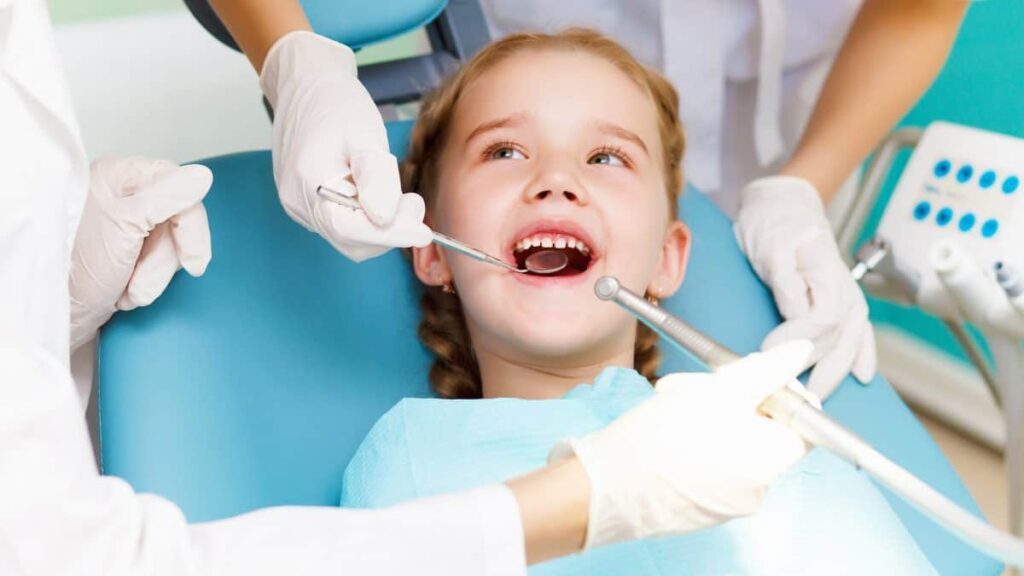Children frighten much more easily than adults. They are very aware of the words you choose (even if they don’t always act like it when you ask them to do something!). We try to avoid words that scare children or that are associated with previous unpleasant experiences. You can help us by trying to use different words around the house other than those used to describe negative dental experiences.
Our intention in using these words is not to “fool” children. We want their trust, after all. We won’t earn their trust by tricking them. Instead, we simply want to use a vocabulary to give them a fair chance to start their visits without unnecessary fears. Our experience has shown us that using these words really is useful in making their trips to our office less frightening.
| Our Terms | Scary Terms |
|---|---|
| sleepy juice | shot or "needle" or anesthetic |
| use the whistle | use the drill |
| clean a tooth | drill on a tooth |
| wiggle a tooth out | pull or yank a tooth |
| the tooth has a sugar bug | the tooth has decay or a cavity |
| count your teeth | dental examination or look for decay |
| tickle your teeth | clean your teeth |
| toothpick | pick or explorer |
| raincoat | rubber dam |
| magic air | laughing gas or gas or nitrous |
| it might bother | it might hurt |

You may choose whether or not you accompany your children to their dental appointments. Although we sense that some children do better without parents present, we are open to having you with your child. If you choose to be present, we suggest the following guidelines to improve the chances of a positive experience for everyone, especially the young patient.
Children usually learn how to communicate their needs to their parents but in the cases where children “act out” in the dental chair they get in the way of what is really best for them. In those cases, the parents and the dentist must work together to give the children what they need. When parents leave the room if asked, it signals to the child that the parent trusts the doctor. It is a powerful message and the child eventually responds by becoming more compliant and eager to please.
Even though you are not present, your child will be in safe, nurturing, and compassionate hands. Dr. Benedict has more than 30 years experience and is the mother of three children.